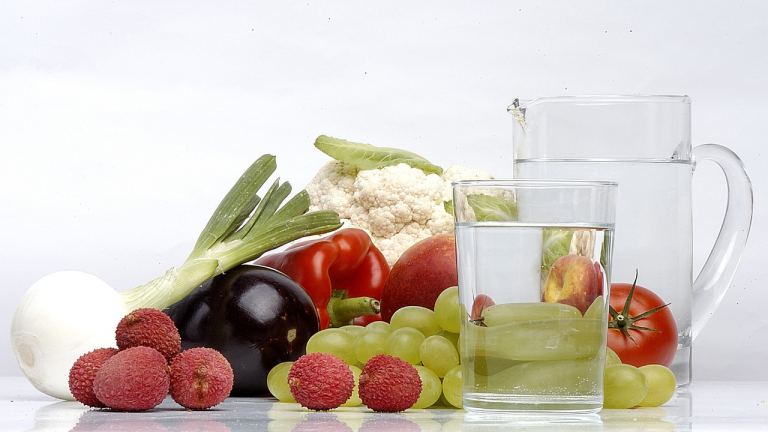How Protein is Good for Weight Loss

Protein plays a crucial role in weight loss and can be beneficial for several reasons:
Increased satiety: Protein is known to be more filling than carbohydrates or fats. Consuming protein-rich foods can help you feel fuller for longer, reducing hunger and the likelihood of overeating. This can support calorie control and aid in weight loss efforts.
Boosted metabolism: The thermic effect of food (TEF) refers to the energy expended during the digestion, absorption, and processing of nutrients. Protein has a higher thermic effect compared to carbohydrates and fats, meaning it requires more energy to metabolize. This increased energy expenditure can slightly boost your metabolism, contributing to calorie burning.
Preserved muscle mass: During weight loss, it’s common to lose both fat and muscle mass. However, adequate protein intake can help preserve lean muscle mass, which is important for overall body composition and metabolic health. Retaining muscle mass during weight loss can help maintain a higher metabolic rate and promote long-term weight management.
Increased energy expenditure: Protein has a higher effect on energy expenditure compared to other macronutrients. It can slightly increase the energy your body burns at rest (resting metabolic rate) and during physical activity. This can contribute to greater overall calorie expenditure and support weight loss efforts.
Improved body composition: Consuming sufficient protein while following a calorie-restricted diet can promote fat loss while preserving muscle mass. This can lead to improvements in body composition, with a higher percentage of weight loss coming from fat rather than muscle.
Reduced cravings and snacking: Protein has been shown to help reduce cravings and late-night snacking. By promoting satiety and stabilizing blood sugar levels, protein-rich foods can help curb hunger and decrease the desire for unhealthy, calorie-dense snacks.
Nutrient density and muscle recovery: Protein-rich foods are often nutrient-dense, containing essential vitamins, minerals, and amino acids necessary for overall health and muscle recovery. Adequate protein intake supports the repair and rebuilding of tissues, which is important during weight loss when the body is under stress.
It’s important to note that while protein can be beneficial for weight loss, a balanced and varied diet that includes all essential nutrients is essential for overall health. Incorporate protein-rich foods such as lean meats, poultry, fish, eggs, legumes, dairy products, and plant-based protein sources like tofu or quinoa into your meals. Aim for a well-rounded diet that includes a mix of protein, healthy fats, whole grains, and plenty of fruits and vegetables.
Consult with a healthcare professional or registered dietitian to determine your specific protein needs and develop an individualized meal plan that aligns with your weight loss goals and overall health.



